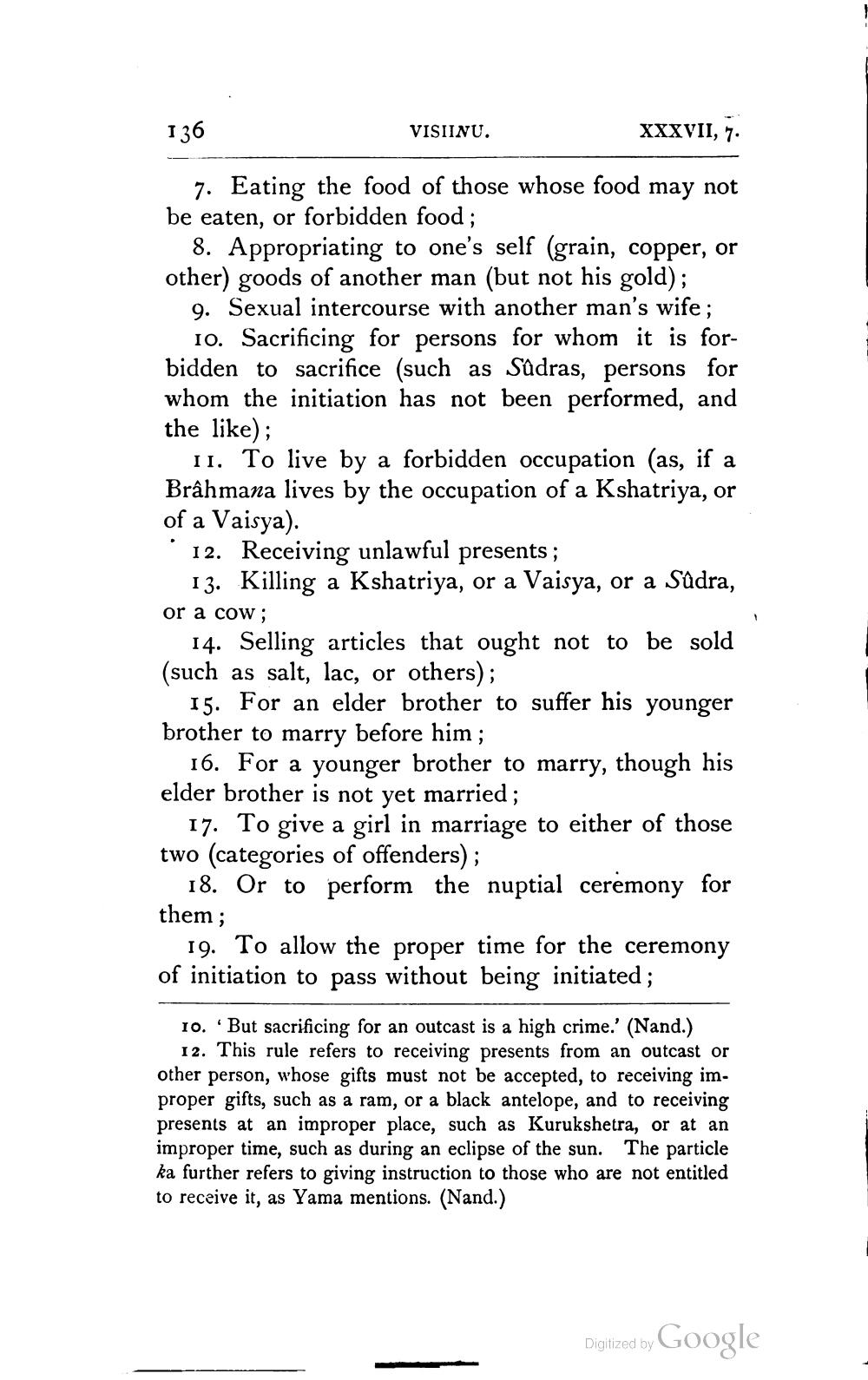________________
136
VISIINU.
XXXVII, 7.
7. Eating the food of those whose food may not be eaten, or forbidden food;
8. Appropriating to one's self (grain, copper, or other) goods of another man (but not his gold);
9. Sexual intercourse with another man's wife;
10. Sacrificing for persons for whom it is forbidden to sacrifice (such as Sūdras, persons for whom the initiation has not been performed, and the like);
II. To live by a forbidden occupation (as, if a Brâhmana lives by the occupation of a Kshatriya, or of a Vaisya).
12. Receiving unlawful presents;
13. Killing a Kshatriya, or a Vaisya, or a Sudra, or a cow;
14. Selling articles that ought not to be sold (such as salt, lac, or others);
15. For an elder brother to suffer his younger brother to marry before him ;
16. For a younger brother to marry, though his elder brother is not yet married;
17. To give a girl in marriage to either of those two (categories of offenders);
18. Or to perform the nuptial ceremony for them;
19. To allow the proper time for the ceremony of initiation to pass without being initiated;
10. 'But sacrificing for an outcast is a high crime.' (Nand.)
12. This rule refers to receiving presents from an outcast or other person, whose gifts must not be accepted, to receiving improper gifts, such as a ram, or a black antelope, and to receiving presents at an improper place, such as Kurukshetra, or at an improper time, such as during an eclipse of the sun. The particle ka further refers to giving instruction to those who are not entitled to receive it, as Yama mentions. (Nand.)
Digitized by Google




